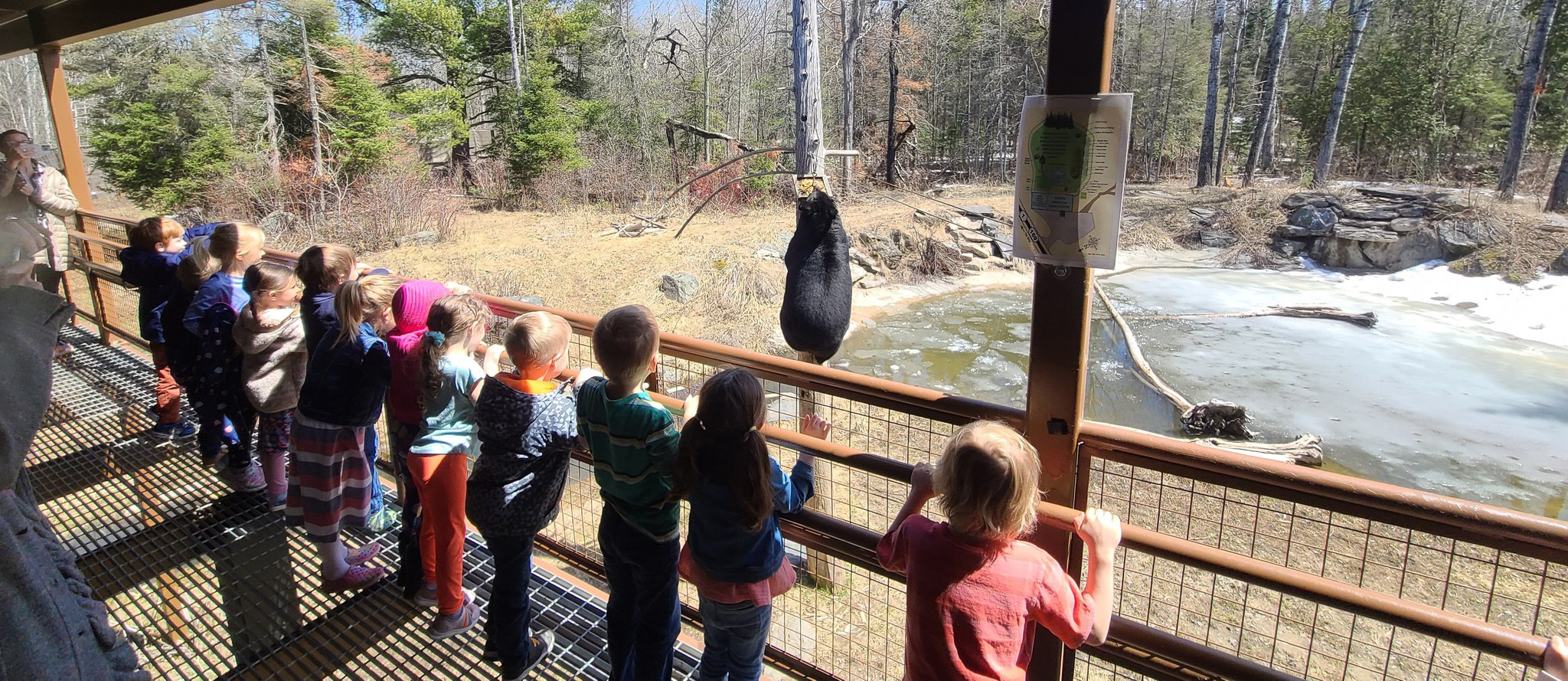

Myth: Mothers Reject Cubs That Have Human Scent
Untrue. This is a total myth—as it is for other young birds and mammals. Touching baby birds and mammals does not cause parents to reject them because of human scent.

Keeping cub warm while mother is tranquilized
Bear cubs
There is no record of a mother bear rejecting a cub because of human scent. Bear researchers around the world have handled newborn cubs in dens for decades without scent being a problem. They have even taken orphaned cubs to dens where strange mothers adopted them as their own (Rogers 1985).
However, in late spring mothers traveling with cubs may kill strange cubs, so Dr. Gary Alt used Vicks Vaporub to mask the scent of cubs when attempting adoptions in late spring (Alt 1984).
Baby birds
Human scent is not a problem for parents of baby birds. Rehabilitators regularly handle baby birds while returning them to nests or returning them to areas where humans have taken them from. Their scent has not been a problem.

Weighing cubs
Lambs
Farmers often try to mask the scent of lambs when they want strange mothers to adopt them. However, scientific testing showed that mothers recognize their own lambs whether they have been touched by humans, smeared with Vicks Vaporub, or smeared with any of a long list of strong-smelling substances, including carnivore anal secretions (Alexander and Stevens 1982). The researchers concluded that “the practice using odoriferous substances to mask lamb odor, and so facilitate fostering of lambs on to ewes, is not soundly based.
References
Alexander, G., and D. Stevens. 1982. Failure to mask lamb odor with odoriferous substances. Applied Animal Ethology 8(3):253-260.
Alt, G. L. 1984. Cub adoption in the black bear. Journal of Mammalogy 65:511-512.
Rogers, Lynn L. 1985. Aiding the wild survival of orphaned bear cubs. Wildlife Rehabilitation 4:104-111.
We are a 501(c)(3) non-profit that relies entirely on the support of visitors, merchandise sales and people like you. We do not receive any state or federal funding.
Help support our mission.
Donate Now